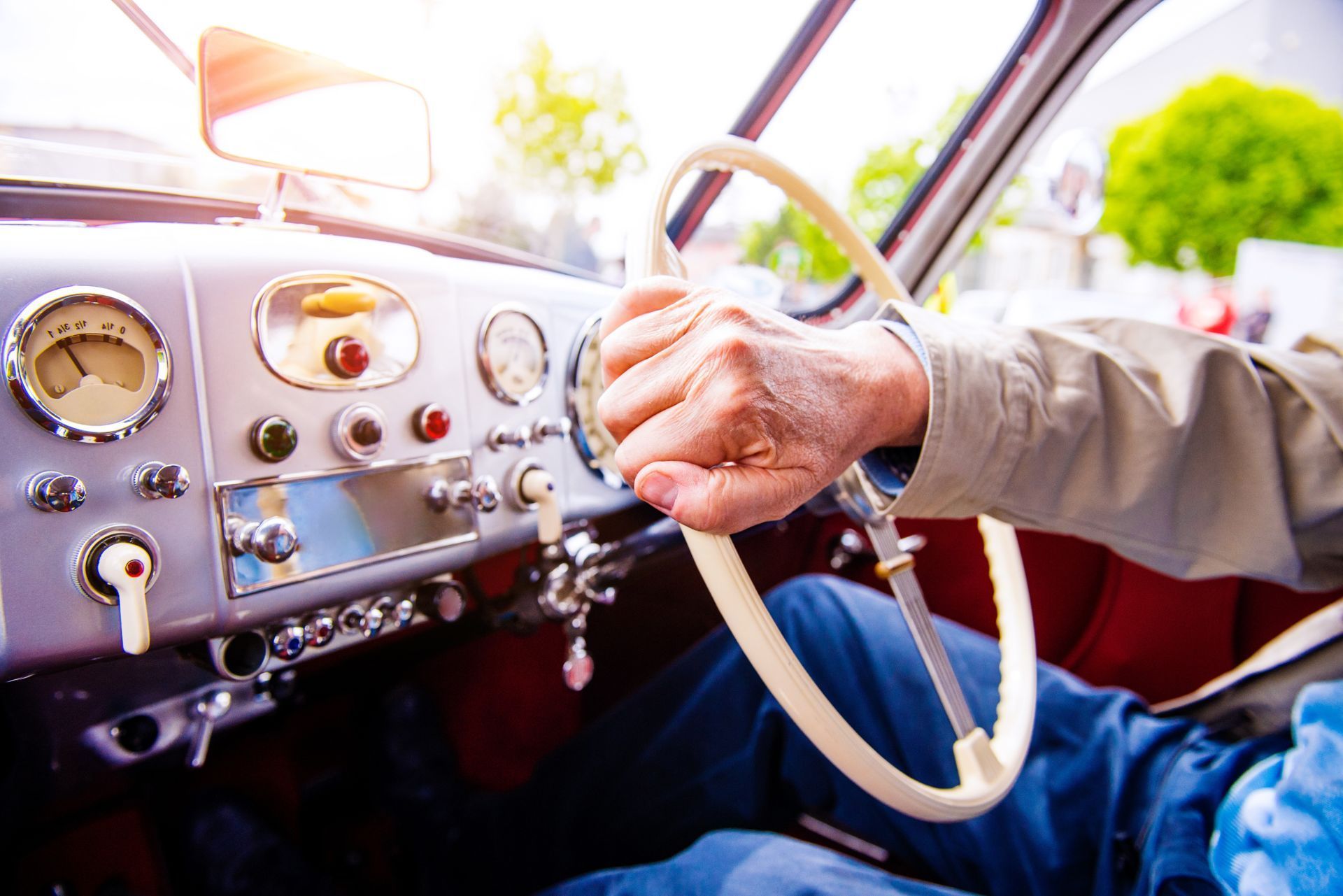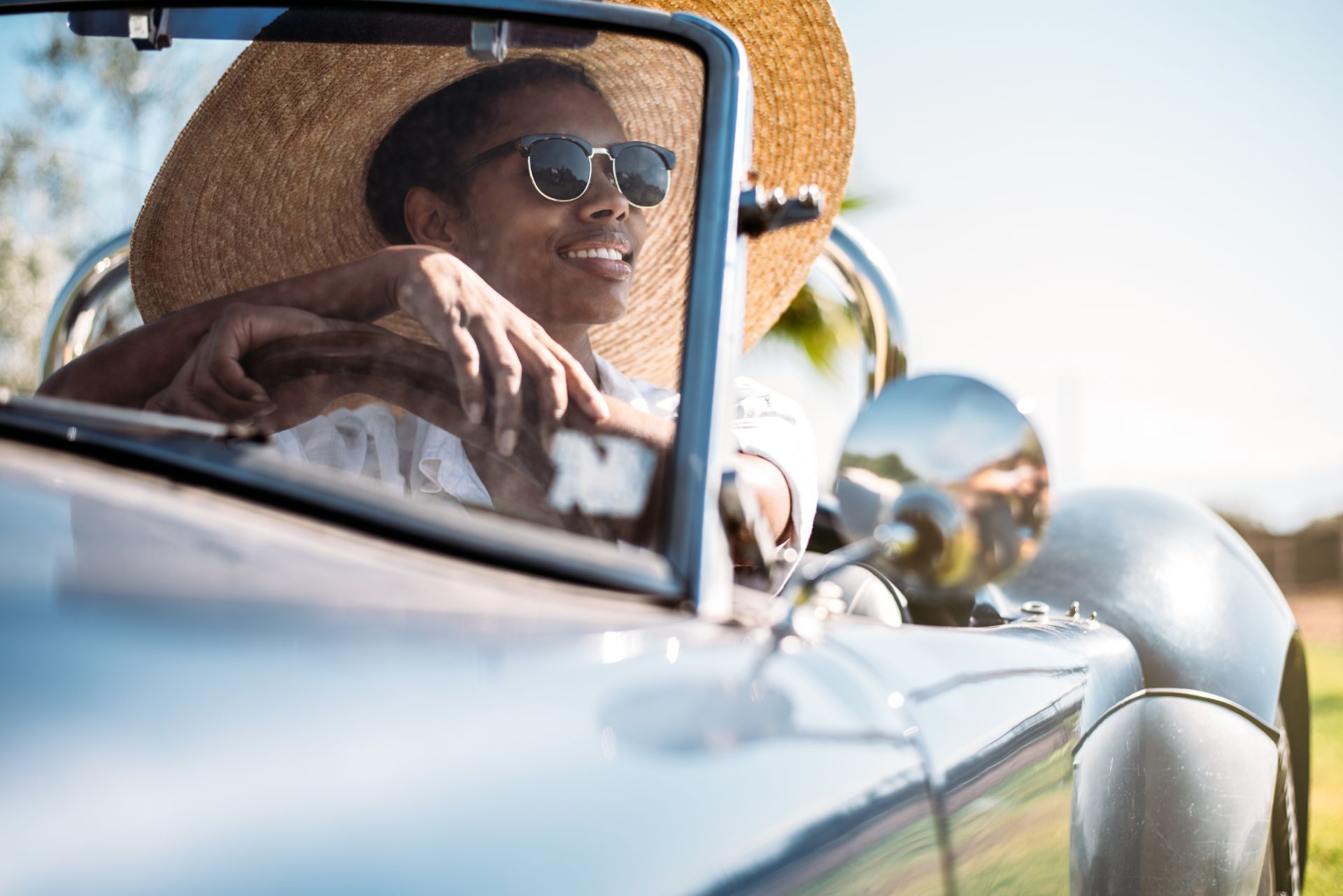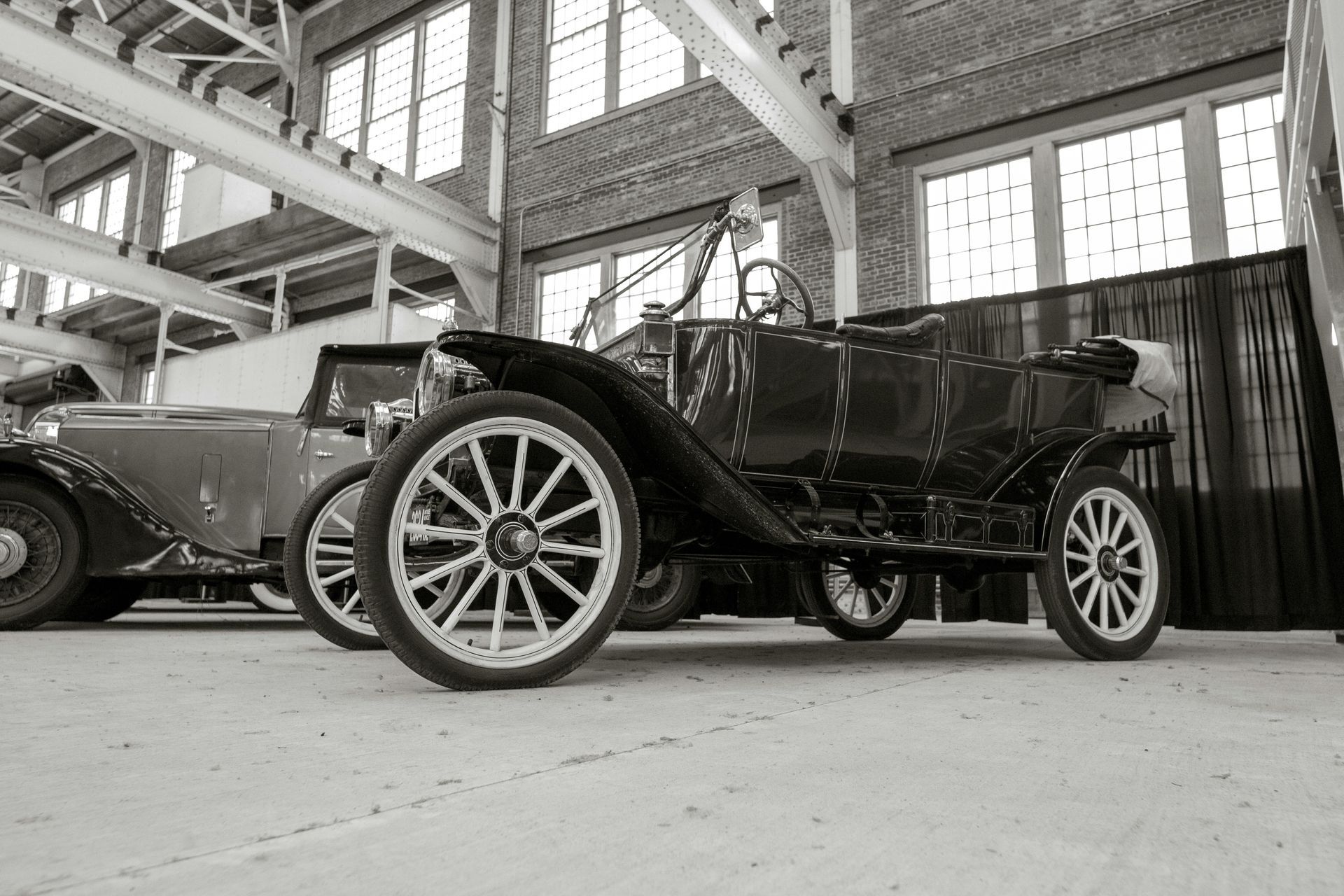Index
Antique car enthusiasts in Michigan understand the unique joy of owning and maintaining classic vehicles. These cars are not just modes of transportation; they are pieces of history that require special considerations, especially when it comes to insurance. Antique car insurance is tailored to meet the specific needs of classic car owners, providing coverage that
standard auto insurance policies may not offer. This article delves into everything you need to know about antique car insurance in Michigan, from eligibility requirements to coverage options.
Understanding Antique Cars in Michigan
Before diving into the specifics of antique car insurance, it’s important to understand what qualifies as an antique car in Michigan. The state has specific criteria that define these vehicles, which can impact insurance eligibility and coverage options.
Definition of Antique Cars
In Michigan, a vehicle is typically considered an antique if it is at least 26 years old and is used primarily for exhibitions, club activities, parades, and other similar events. This definition helps ensure that antique cars are preserved and appreciated rather than used as daily drivers.
Additionally, the Michigan Secretary of State has a process for registering antique vehicles, which can further influence insurance requirements. Owners must provide documentation proving the vehicle's age and its intended use, which can help in securing the right insurance coverage. The registration process also includes a thorough inspection to verify the vehicle's condition, ensuring that only well-maintained cars qualify for this special designation. This not only protects the integrity of the antique car community but also helps maintain the value of these classic vehicles over time.
Why Antique Cars Require Special Insurance
Antique cars often hold significant value, both financially and sentimentally. Standard auto insurance policies may not adequately cover the unique risks associated with these vehicles. For instance, the restoration costs for an antique car can be substantially higher than for a modern vehicle. Antique car insurance is specifically designed to address these needs.
Moreover, antique cars are generally not used for daily commuting, which affects their risk profile. Insurance companies recognize this and often offer specialized policies that reflect the lower mileage and unique usage patterns of antique vehicles. These policies may include features such as agreed value coverage, which ensures that the car is insured for its full appraised value rather than its depreciated market value. This is particularly important for collectors and enthusiasts who invest considerable time and resources into restoring and maintaining their cars. Furthermore, many antique car insurance policies also provide coverage for spare parts and accessories, which can be crucial for owners who may need to source rare components to keep their vehicles in pristine condition.

Types of Antique Car Insurance Coverage
When it comes to insuring an antique car in Michigan, several types of coverage are available. Understanding these options can help owners choose the best policy for their needs.
Agreed Value Coverage
One of the most significant benefits of antique car insurance is the option for agreed value coverage. This means that the owner and the insurance company agree on the car's value at the time the policy is written. In the event of a total loss, the owner will receive the agreed-upon amount, rather than the market value, which can fluctuate.
This type of coverage is particularly beneficial for antique car owners, as it ensures that they are compensated fairly for their investment, regardless of market trends. It also provides peace of mind, knowing that the unique value of the vehicle is recognized and protected. Additionally, agreed value coverage often requires a professional appraisal, which not only helps in determining the car's worth but also adds to the documentation that can be useful for future sales or restorations.
Liability Coverage
Liability coverage is a standard component of any insurance policy, including those for antique cars. This coverage protects the owner in the event that they are found responsible for causing damage to another person or their property while operating the antique vehicle.
In Michigan, liability coverage is mandatory for all vehicles, including antique cars. Owners should ensure that their policy meets the state’s minimum requirements while also considering additional coverage for enhanced protection. Furthermore, antique car owners may want to look into higher liability limits, especially if they frequently participate in car shows or events where the vehicle is more exposed to potential accidents or damages. This proactive approach can safeguard against unexpected legal costs and financial liabilities.
Comprehensive and Collision Coverage
Comprehensive and collision coverage are additional options that can be included in an antique car insurance policy. Comprehensive coverage protects against non-collision-related incidents, such as theft, vandalism, or natural disasters. Collision coverage, on the other hand, covers damages resulting from accidents, regardless of fault.
While these coverages are not always necessary for antique cars, they can provide valuable protection, especially for high-value vehicles. Owners should evaluate their specific needs and the potential risks associated with their antique cars when deciding on these options. For instance, if the car is often displayed at public events or driven in parades, comprehensive coverage can be particularly crucial, as these situations may expose the vehicle to higher risks of theft or damage. Additionally, some policies may offer specialized coverage for parts and accessories, which can be essential for rare or custom modifications that enhance the car's value and uniqueness.
Eligibility Requirements for Antique Car Insurance in Michigan
To qualify for antique car insurance in Michigan, owners must meet certain eligibility requirements. These requirements can vary by insurance provider, but there are common standards that most companies adhere to.
Vehicle Age and Condition
As mentioned earlier, a vehicle must be at least 26 years old to qualify as an antique in Michigan. Additionally, the car should be in good condition, as insurers may require an inspection or photographs to assess its state. This ensures that the vehicle is not only a classic but also well-maintained, which can affect its insurability. Owners should be prepared to provide detailed documentation of any restorations or repairs that have been made to the vehicle, as this can further support their application for insurance. A well-documented history of maintenance can not only enhance the vehicle's value but also provide peace of mind to both the owner and the insurer.
Limited Use Policy
Antique car insurance typically comes with a limited use policy, meaning the vehicle is not intended for daily driving. Owners may be required to limit their mileage or specify the occasions for which the car will be used, such as car shows, parades, or club events. This limited use helps insurers manage risk and can lead to lower premiums. Additionally, some policies may allow for occasional pleasure driving, but this is often capped at a certain mileage threshold per year. It’s crucial for owners to understand these limitations, as exceeding them could result in a denial of coverage in the event of a claim. Therefore, keeping a log of usage can be beneficial for those who want to ensure they remain compliant with their policy terms.
Membership in Car Clubs
Many insurance companies offer discounts for antique car owners who are members of recognized car clubs. Being part of a club can demonstrate a commitment to the preservation and proper use of antique vehicles, which can positively influence insurance rates. Owners should inquire about potential discounts when shopping for policies. Furthermore, joining a car club can provide valuable resources, such as access to expert advice on restoration, maintenance tips, and networking opportunities with fellow enthusiasts. These clubs often host events that celebrate automotive history, allowing members to showcase their vehicles and share their passion with others. This community aspect not only enriches the ownership experience but can also lead to increased support when navigating the intricacies of antique car insurance.
How to Choose the Right Antique Car Insurance Policy
Choosing the right antique car insurance policy requires careful consideration of various factors. Owners should take the time to evaluate their needs and compare different options before making a decision.
Assessing Coverage Needs
Each antique car owner’s situation is unique, so it's crucial to assess individual coverage needs. Consider factors such as the car's value, how often it will be driven, and the types of events it will be used for. This assessment will help determine the appropriate coverage levels and types.
Additionally, owners should think about any special features or modifications made to the vehicle, as these can affect its value and insurance requirements. Discussing these details with an insurance agent can provide clarity on necessary coverage. For instance, if the vehicle has been restored or customized, it may require specialized coverage to protect those enhancements. Furthermore, owners should also consider the potential for depreciation over time, as this can influence the overall value and the type of coverage that may be most beneficial.
Comparing Insurance Providers
Not all insurance providers offer the same policies or rates for antique cars. It’s beneficial to shop around and compare quotes from multiple companies. Look for insurers that specialize in antique or classic car insurance, as they will have a better understanding of the unique needs of antique car owners.
When comparing quotes, consider not just the premium costs but also the coverage options, customer service reputation, and claims process. Reading reviews and seeking recommendations can help in making an informed choice. Additionally, it may be worthwhile to inquire about any discounts that could apply, such as those for membership in classic car clubs or for multiple policies with the same insurer. These factors can significantly affect the overall cost and value of the insurance policy.
Understanding Policy Terms and Conditions
Once potential policies have been identified, it’s essential to read the terms and conditions carefully. Understanding what is covered, what is excluded, and any limitations or requirements is crucial to avoid surprises later on.
Pay attention to details such as mileage limits, usage restrictions, and any specific requirements for maintaining coverage. Clarifying any uncertainties with the insurance provider can ensure that the chosen policy aligns with the owner’s needs. Moreover, it’s important to be aware of the claims process outlined in the policy. Knowing how to file a claim, what documentation is needed, and the expected timeline for resolution can provide peace of mind, especially in the event of an accident or damage. This foresight can save owners from unnecessary stress and complications should they ever need to utilize their insurance coverage.

Cost of Antique Car Insurance in Michigan
The cost of antique car insurance can vary significantly based on several factors. Understanding what influences these costs can help owners budget effectively.
Factors Influencing Insurance Premiums
Several factors can affect the cost of antique car insurance, including the vehicle’s value, the owner’s driving history, and the coverage options selected. Generally, antique cars are less expensive to insure than modern vehicles due to their limited use and lower risk profiles.
However, high-value antique cars may require more comprehensive coverage, which can increase premiums. Additionally, the owner’s experience with classic cars and their claims history can also impact rates. Insurers may offer discounts for safe driving records or for being a member of a car club.
Moreover, the type of antique vehicle can also play a significant role in determining insurance costs. For instance, classic muscle cars or rare vintage models may attract higher premiums due to their desirability and potential for theft. Conversely, more common models might be less expensive to insure. Additionally, the intended use of the vehicle—whether for shows, parades, or occasional drives—can influence the policy type and cost, as insurers consider how often the car will be on the road.
Average Premium Costs
While it’s difficult to pinpoint an exact average for antique car insurance premiums in Michigan, many owners report costs ranging from $200 to $500 annually. Factors such as the car’s age, value, and the chosen coverage will ultimately determine the final premium.
It’s advisable for owners to obtain multiple quotes to find the best rates and coverage options tailored to their specific antique vehicles. Additionally, many insurers offer specialized policies that cater specifically to antique and classic cars, which can provide enhanced coverage for restoration costs, spare parts, and even agreed value coverage, ensuring that owners receive a fair payout in the event of a total loss. Owners should also consider the benefits of bundling their antique car insurance with other policies, such as home or auto insurance, to potentially secure additional discounts and savings.
Common Myths About Antique Car Insurance
There are several misconceptions surrounding antique car insurance that can lead to confusion among owners. Addressing these myths can help clarify the realities of insuring classic vehicles.
Myth: Antique Cars Are Always Cheaper to Insure
While antique cars can often be less expensive to insure than modern vehicles, this is not a universal rule. Factors such as the car's value, the type of coverage selected, and the owner's driving history can all influence premiums. High-value antique cars may require more comprehensive coverage, which can lead to higher costs. Additionally, the rarity and condition of the vehicle play significant roles in determining insurance rates. For instance, a well-preserved classic car that is sought after by collectors may command a higher premium than a more common model, regardless of its age.
Myth: Any Insurance Policy Will Suffice
Another common myth is that standard auto insurance policies are sufficient for antique cars. In reality, antique vehicles have unique needs that standard policies may not address. Specialized antique car insurance provides tailored coverage options that better protect these valuable assets. This type of insurance often includes features such as agreed value coverage, which ensures that the owner receives a predetermined amount in the event of a total loss, rather than the depreciated market value. Furthermore, these policies may also offer coverage for spare parts and accessories, which can be crucial for maintaining the vehicle's authenticity and value over time.
Myth: Antique Cars Can’t Be Driven Regularly
While antique car insurance often comes with limited use policies, this does not mean that owners cannot drive their vehicles regularly. Many policies allow for occasional use, provided it aligns with the agreed-upon terms. Owners should clarify usage limits with their insurance provider to ensure they understand their policy’s allowances. Moreover, some insurance companies offer flexible options that accommodate car shows, parades, and club events, allowing enthusiasts to enjoy their vehicles without fear of violating their coverage terms. It’s essential for owners to keep detailed records of their driving habits and any events they attend, as this can help in maintaining compliance with their policy and ensuring they are adequately protected while enjoying their classic cars.
Conclusion
Antique car insurance in Michigan is a vital aspect of owning and preserving classic vehicles. Understanding the unique requirements, coverage options, and costs associated with insuring antique cars can help owners make informed decisions. By choosing the right policy, antique car enthusiasts can protect their investments and enjoy their vehicles with peace of mind.
Whether it’s for car shows, club events, or leisurely drives, having the appropriate insurance coverage ensures that these cherished vehicles are safeguarded against unforeseen circumstances. As the antique car community continues to thrive in Michigan, being knowledgeable about insurance options will empower owners to enjoy their passion fully.


